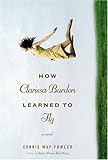 Book description:
Book description:When Henry Oades accepts an accountancy post in New Zealand, his wife, Margaret, and their children follow him to exotic Wellington. But while Henry is an adventurer, Margaret is not. Their new home is rougher and more rustic than they expected—and a single night of tragedy shatters the family when the native Maori stage an uprising, kidnapping Margaret and her children.
For months, Henry scours the surrounding wilderness, until all hope is lost and his wife and children are presumed dead. Grief-stricken, he books passage to California. There he marries Nancy Foreland, a young widow with a new baby, and it seems they’ve both found happiness in the midst of their mourning—until Henry’s first wife and children show up, alive and having finally escaped captivity.
This book is based on an actual legal case of a man legally (though unintentionally) married to two women at the same time. The story starts our strong with a detailed look at the fateful decision of Henry Oades to sail off to New Zealand with his family. The characters are well-introduced, and I looked forward to the gradual reveal of their deeper thoughts and motivations- unfortunately, such revelations never occured.
Though the facts of the case remained interesting, the lack of detail in the narrative was extremely frustrating. After all, this is a fictional account so some effort at character development (even if it wasn't supported by primary sources) would have made for a much more enjoyable read. There is no background given that might help explain why the Maori took the Oades captive, and much more attention is focused on Henry's reaction to the abduction than on the reactions of those abducted. The subsequent escape comes out of nowhere, the journey to America passes in a flash, and even the actual court case is just glossed over in the narrative.
The author had all the seeds necessary to create a strong dramatic piece, but ultimately failed to pull this reader into the narrative. Overall, I found this to be a very unsatisfying novel, lacking as it did any real emotional connection to any of the characters.




